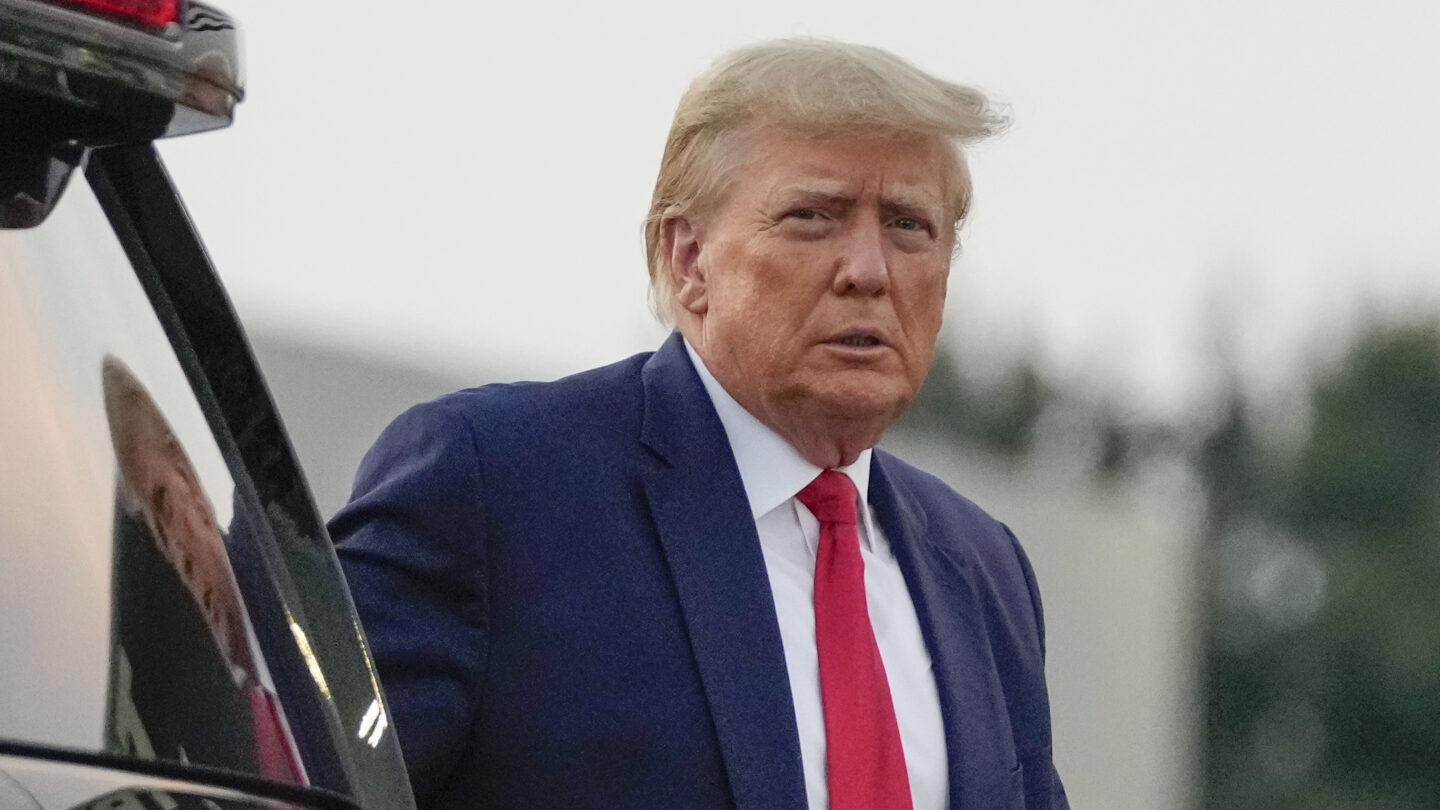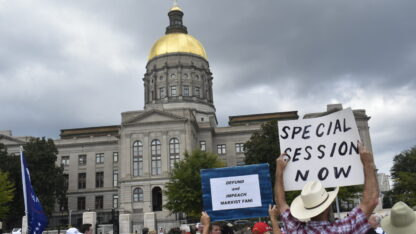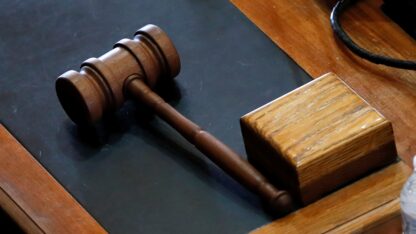Prosecutors who have accused former President Donald Trump and 18 others of participating in an illegal scheme to overturn the results of the 2020 election in Georgia maintain that all of the defendants should be tried together, citing efficiency and fairness.
The case was brought under the state’s anti-racketeering law, meaning the same witnesses and evidence will be used in any trial, they wrote in a brief they said was filed Tuesday. Holding several lengthy trials instead would “create an enormous strain on the judicial resources” of the county superior court and would randomly favor the defendants tried later, who would have the advantage of seeing the state’s evidence and arguments ahead of time, prosecutors wrote.
Fulton County District Attorney Fani Willis said last month in announcing the charges that she wanted to try all 19 defendants together. Two of the people charged have filed speedy trial demands, and Judge Scott McAfee set their trial for Oct. 23. At a hearing last week, he said it seemed “a bit unrealistic” to imagine that all of the defendants could be tried that soon and asked Willis’ team for a brief explaining why they felt that was necessary.
Lawyers Kenneth Chesebro and Sidney Powell are the two who have filed speedy trial demands. They also requested to be tried separately from each other, but McAfee denied that request. Chesebro is accused of working on the coordination and execution of a plan to have 16 Georgia Republicans sign a certificate declaring falsely that Trump won and declaring themselves the state’s “duly elected and qualified” electors. Powell is accused of participating in a breach of election equipment in rural Coffee County.
Most of the other defendants have filed motions to be tried alone or in smaller groups, but prosecutors noted that those defendants have not waived their rights to file their own speedy trial demands. The deadline for that is Nov. 5 and if such demands were filed it would trigger one or more trials starting within the following two months, with the trial for Chesebro and Powell still underway. That could lead to multiple trials in the high-profile case happening simultaneously, creating security issues and “unavoidable burdens” on witnesses and victims, prosecutors argued.









